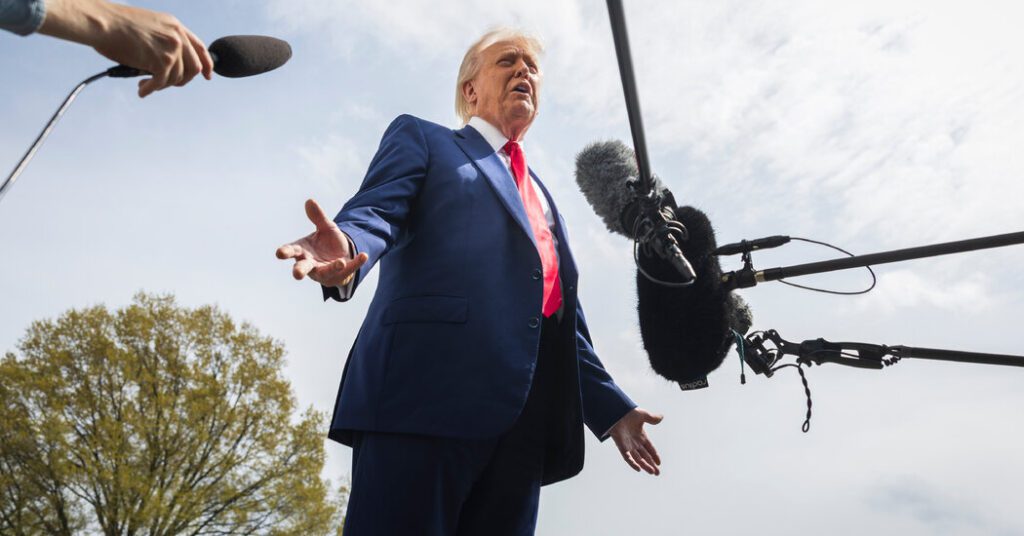Impact of U.S. Tariffs on Global Trade Relations
In a significant move that reshaped global economic relations, President Trump’s recent announcement regarding sweeping tariffs on imports has ignited tensions with multiple trading partners, particularly China. The consequences are being felt across various sectors, marking the beginning of a contentious trade war.
China’s Response and Market Reactions
Following President Trump’s declaration, which included a 20 percent tariff on Chinese imports, China has swiftly retaliated with plans for a 34 percent tariff on key American products, particularly in agriculture. This tit-for-tat escalation has triggered widespread alarm in financial markets, leading to notable declines on Wall Street. The S&P 500 index plunged by nearly 6 percent, edging closer to bear market territory, while the Nasdaq saw a decrease of 5.8 percent.
Experts’ Warnings and Economic Implications
High-level officials like Ngozi Okonjo-Iweala, director-general of the World Trade Organization, have issued stark warnings against a cycle of retaliatory tariffs, cautioning it could further depress global trade volumes by up to 1 percent this year. Jerome H. Powell, chair of the Federal Reserve, echoed these sentiments, highlighting that the anticipated economic repercussions may exceed forecasts, resulting in heightened inflation and slowed growth.
President Trump’s Stance
Amid this turmoil, President Trump maintains a resolute stance, asserting via social media that his policies are working and promising to stay the course. He pointed to a recently released jobs report as evidence of economic strength prior to the tariff announcement. Furthermore, he openly criticized his advisor at the Federal Reserve, urging a reduction in interest rates, which he claims would alleviate market pressures.
Global Trade Dynamics at Stake
The significance of the tariffs extends beyond immediate financial markers; they represent a shift in U.S. trade policy aimed at recalibrating international trading norms that Trump views as inequitable. However, experts raise concerns that such strategies may place significant burdens on businesses facing higher input costs, ultimately leading to increased prices for consumers and risk of recession as spending declines.
State and International Responses
Gavin Newsom, the governor of California, has indicated intentions to pursue independent trade agreements in light of the tariffs’ impacts on local businesses. He warned that the president’s approach could have severe implications for Americans, including those supporting Trump’s administration.
In the broader international arena, discussions continued as trade representatives from various countries, including a statement from the EU’s Maros Sefcovic, condemned the U.S. tariffs as unjustified. Meanwhile, countries like Vietnam are keen on negotiating tariff reductions to avoid the imposition of a 46 percent tariff expected next week.
Broader Economic Concern
The current climate indicates a severe lack of confidence in the market concerning Trump’s tariff strategy. Joe Brusuelas, chief economist of RSM, noted that there seems to be no clear strategic vision for navigating the complexity of hitting trade partners with tariffs. Such a lack of direction exacerbates concerns about economic stability.
Conclusion
As the situation develops, the prospect of escalating trade hostilities looms large, with possible long-term ramifications for the global economy and American consumers alike. Financial markets and international relationships remain in a state of flux as stakeholders await further clarification from the Trump administration regarding tariff policies and their implications.
For further insights and ongoing updates on this evolving situation, stay tuned.


